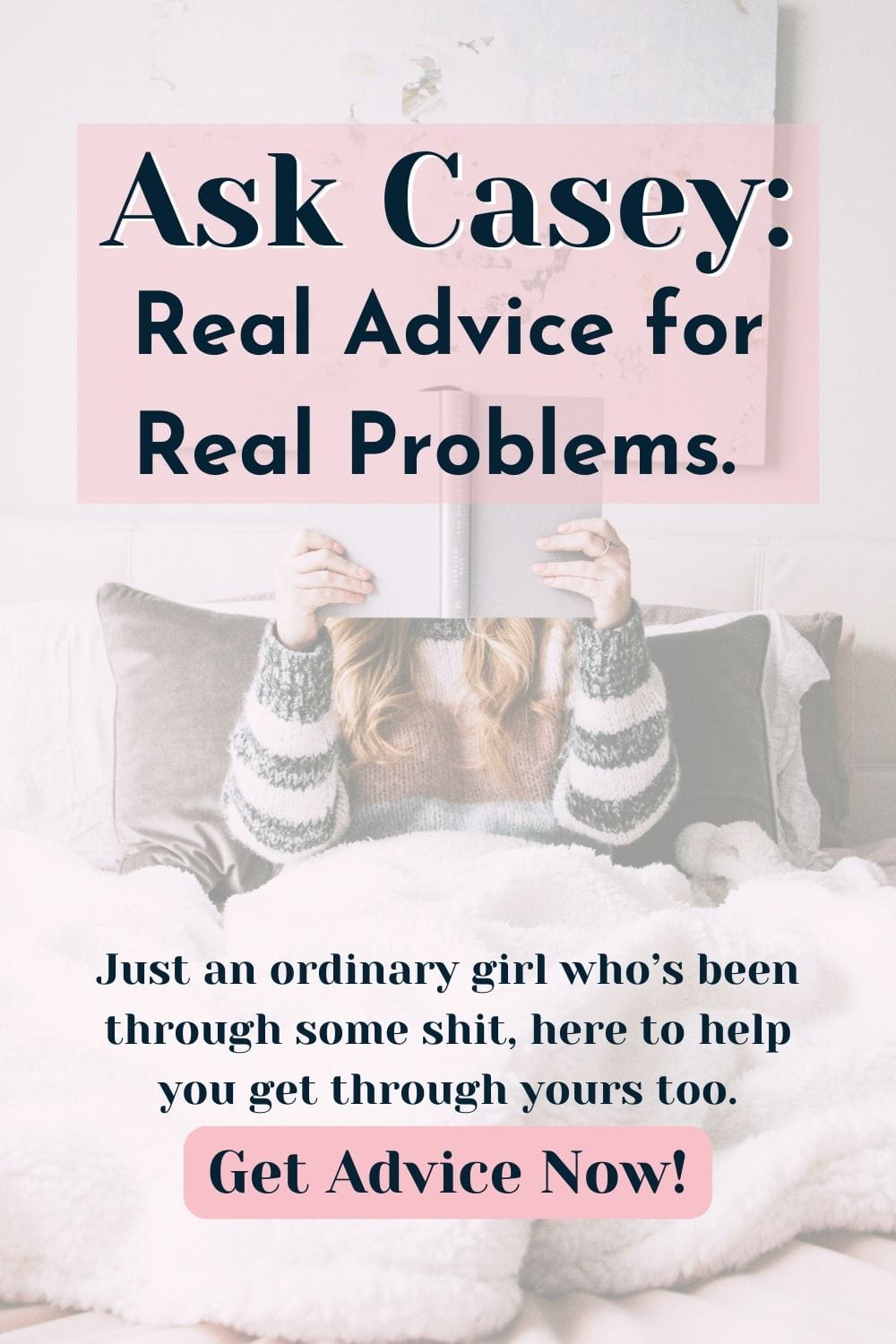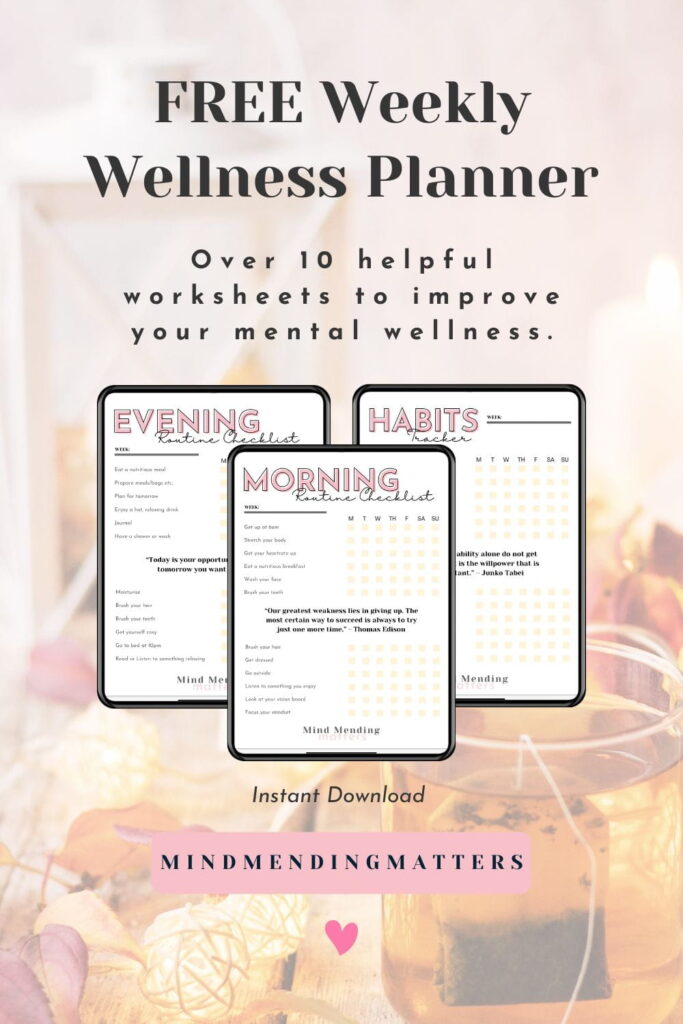If you’ve ever felt like you’re drowning in sadness, and no matter how hard you try, you just can’t reach the surface, you’re not alone. Coping with depression can feel impossible; it doesn’t care if everything in your life looks perfect on the outside – it will still steal your joy, your energy, and your will to keep going. I know this because I’ve been living with clinical depression for over 20 years. But here’s the thing: while depression may feel like a never-ending battle, there are ways to fight back. This post isn’t a magic cure, but I hope it gives you a few tools to help you navigate the darkness, ease the weight, and remind you that you don’t have to go through this alone.
Living with Depression: The Constant Threat of Falling
For me, living with depression feels like wading through a muddy field full of hidden sinkholes in the dark. One minute, the path feels solid beneath your feet, and the next, you’re plunging into darkness, desperately trying to claw your way out. And just when you think you’ve made it out, along comes the next one.
This struggle is exhausting and soul-crushing, and it doesn’t care who you are or what you’ve achieved. For me, depression has been both situational—triggered by life’s cruelties—and unexplainable, showing up when I had everything I’d ever dreamed of. Depression is not something that can be neatly categorised or controlled.
I often think of the Dementors from Harry Potter when trying to explain depression. Dementors drain all the happiness and warmth from a person, leaving them feeling cold, empty, and hopeless. That’s exactly what depression feels like to me. If only casting Expecto Patronum—and eating a bit of chocolate—could banish those dark feelings as easily as it does in the books. Unfortunately, it’s not that simple. But acknowledging that darkness exists is the first step in learning how to fight it.
There have been times when life was objectively good—great friends, a loving relationship, my career on track—and still, I would wake up every day with this crushing weight on my chest, wondering how I was going to make it through the day. That’s what makes depression so infuriating. It doesn’t follow logic; it can creep in even when there’s no “reason” for it. I know how that feels, and I know how lonely it can be.
Recognising the Early Signs: When the Darkness Starts to Settle In
Depression doesn’t always announce itself with sirens. It sneaks in quietly, slowly pulling the colour out of everything. The early signs are subtle at first. Personally, I start to feel constantly tired, even after a long sleep. And it’s a different kind of exhaustion, not the physical tiredness from a long day, but the kind where just existing feels like too much.
Then, there’s the apathy, where everything I usually love to do starts to feel meaningless. Even the idea of a meal out with loved ones seems like a chore, and I retreat into isolation.
I remember noticing the signs as far back as my teenage years. I’d find myself in this grey fog, where everything felt muted. I’d feel numb like life was happening in the background, and I was just going through the motions, barely holding on. I didn’t know how to explain it to anyone. How could I? I didn’t even understand it myself for a long time. So it led to me being seen as moody and defensive, but really, I was just fighting a battle with my own mind.
Another early sign for me is losing time. I’ll go through the day, but everything feels blurred. I can sit for hours in my own head and not even realise how much time has passed or I’ll get to the end of a movie and realise I have no idea what really happened in it. I start missing commitments or forgetting tasks because my mind feels like it’s filled with static. It’s not that I don’t care, but the depression makes everything so overwhelming that I can’t focus.
And then there’s the irritability. Little things, like someone talking too loudly or a small inconvenience, can suddenly feel unbearable. It’s like my emotional capacity is depleted, and even the tiniest trigger can set me off. This irritability is often one of the first signs I’m slipping into a depressive episode, though I rarely recognise it for what it is at the time.
Once you begin to notice these patterns, it becomes easier to identify when the clouds are starting to gather. And while it doesn’t prevent the storm, it does give you a head start on preparing for it.
12 Coping Strategies for Managing Depression

busy bee??… pin me for later
1. Create a Routine: Structure in the Chaos
When I feel like I’m spiralling, having a routine helps me feel anchored. Something as simple as getting up at the same time each day, making my bed, or taking a walk can bring a little stability. It’s not about fixing everything in one go but about giving yourself small moments of normality.
2. Mindfulness: Being Present in the Storm
Depression has a way of dragging us into the past or flinging us into a future filled with worries. Practising mindfulness—being present in the moment—can help slow that mental chaos. Sometimes, it’s as simple as focusing on the warmth of my cup of tea or the way the rain sounds against the window. I like to remind myself: right now, in this moment, I’m safe.
3. Journalling: Letting the Darkness Out
I often turn to journalling when I can’t make sense of the thoughts swirling in my head. It’s a way to put all the mess onto paper, without judgment. Some days, I write long, emotional letters to myself; other times, I just list what’s on my mind. I’ve even included journaling prompts in my Write to Thrive challenge, to help guide you through your own thoughts.
4. Exercise: Moving Through the Mud
I won’t pretend it’s easy to exercise when depression has you in its grip. There have been days where the idea of getting out of bed, let alone a workout session, felt impossible. But I’ve found that even gentle movement – a walk in the park, some light stretches, or some at-home tai chi – can shift something in my body and lift my mood. It doesn’t fix everything, but it helps.
5. Boundaries: Protecting Your Energy
When depression hits, it’s crucial to protect your energy. This might mean saying no to social events or setting boundaries with people who drain you. I’ve learned to give myself permission to withdraw when I need to, without guilt because that’s what I need to recover and that’s okay.
6. Limit Social Media: The Comparison Trap
Social media can be toxic when you’re struggling with your mental health. It’s so easy to fall into the comparison trap, feeling like everyone else has their life together while you’re barely holding on, but social media isn’t reality, it’s a highlight reel. I now limit my time on social platforms and unfollow accounts that make me feel worse. Only follow accounts that uplift you, teach you something or add to your life!
7. Talk to Someone: Share the Weight
One of the hardest things about depression is the isolation it can cause. But I’ve learned that reaching out to someone – whether it’s a friend, partner, family member, or therapist – can make all the difference. Even when I don’t feel like talking, knowing someone is there for me helps.
8. Celebrate Small Wins: Every Step Matters
Depression makes it hard to celebrate anything. But I’ve learned to acknowledge the small victories. If I manage to get out of bed, shower, or make myself a meal, I remind myself that these are wins. Every step forward is progress, no matter how small it seems.

9. Challenge Negative Thoughts: Shifting the Dialogue
Depression comes with a constant barrage of negative thoughts – that inner monologue telling you that you’re not enough, that you’ll never feel better. I’ve had to learn how to challenge those thoughts. When my mind tells me “I can’t,” I ask, “But what if I can?” It’s not easy, and I have to work on it daily but it’s like a muscle, it gets stronger every time you use it.
10. Self-Compassion: Be Gentle with Yourself
I’ve wasted far too many years being my own worst critic. Now, I try my hardest to practice self-compassion. Again, this is a daily, conscious effort for me, but when I’m having a bad day, I try to be as kind to myself as I would to a friend. It’s about recognising that I’m doing my best with the hand I’ve been dealt.
11. Gratitude: Finding Light in the Dark
Some days, it feels impossible to find anything to be grateful for. Yet, I’ve discovered that even on the darkest days, small things—a warm cup of tea, the sound of my favourite song—can bring a flicker of light. Practising gratitude, even for the tiniest moments, can help shift your perspective. That’s why every evening, as I journal, I make it a point to end with three things from my day that I’m grateful for. This simple practice allows me to go to bed focused on the positives, no matter how small they may be.
12. Professional Support: You Don’t Have to Do This Alone
Therapy has been a lifeline for me many times in my life. Speaking to someone who understands the complexities of depression has given me tools and insights I couldn’t have found on my own. If you’re struggling, I encourage you to seek professional help. You don’t have to fight this battle alone. It does not make you weak, it is one of the bravest things you will ever do in your life and you should be proud!
Final Thoughts
Depression can make you feel isolated, but I want you to know that you’re not alone in this. Whether it’s through these strategies, professional support, or just knowing that someone out there gets it – there’s hope.
Better days are ahead, even when it doesn’t feel like it. And if you ever feel like the weight is too much, reach out. I’m here to support you and encourage you every step of the way! And so are many others who understand the battle you’re facing.
Finally, here are a few books that have helped me on my journey. They are written by people who have been in the trenches of depression, and their words might just give you the comfort you need on those tough days:
- Reasons to Stay Alive by Matt Haig
- The Noonday Demon by Andrew Solomon
- Lost Connections by Johann Hari
- The Unwelcome Visitor by Denise Walsh
Always remember you are worthy, loved and enough! – just as you are!
Read Next:
- 20 Habits for Self-Love and Compassion
- 35 Self-Care Ideas You Can Do At Home!
- 10 Simple Self-Care Ideas For Even Your Worst Days













